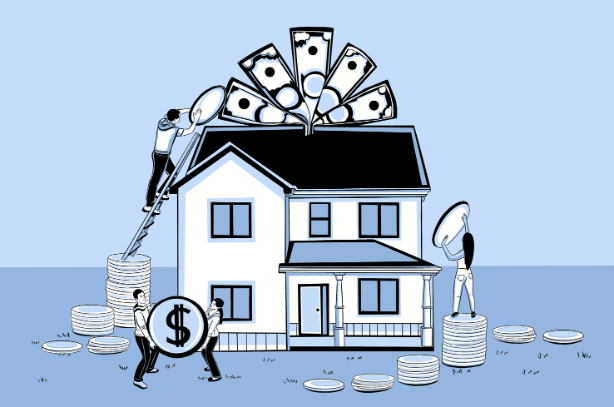
Real estate investment continues to be an attractive option for those looking to diversify their portfolios and generate passive income. Two European countries that have garnered significant attention in recent years are Ireland and Sweden. Both offer unique advantages and challenges for property investors. For those interested in exploring properties for sale in Ireland, it’s important to understand the country’s growing market potential. This comparative guide will explore the real estate investment landscapes in these two countries, highlighting key factors to consider when deciding where to invest.
Economic Overview
Ireland
Ireland has experienced robust economic growth in recent years, earning it the nickname “Celtic Tiger.” The country has successfully attracted multinational corporations, particularly in the tech sector, which has driven demand for both residential and commercial properties.
Sweden
Sweden boasts a stable and prosperous economy, with a strong focus on innovation and sustainability. The country has shown resilience during economic downturns and maintains a high standard of living.
Real Estate Market Trends
Ireland
The Irish property market has seen significant price increases, particularly in urban areas like Dublin. According to recent data, Irish house prices were up 8.9% in the first three months of 2023. The rental market is also strong, with rental prices rising by 13.7% year-over-year in Q4 2022.
Sweden
Sweden has experienced a steady increase in foreign investment in the real estate sector. Low interest rates and available financing have made Sweden an attractive market for international investors. The Sweden real estate market is known for its stability and transparency.
Investment Opportunities
Ireland
- Residential Properties: With a housing shortage in major cities, there’s high demand for both rental and purchase properties.
- Commercial Real Estate: The influx of international companies has increased demand for office spaces and commercial properties.
- Student Housing: With several prestigious universities, student accommodation presents a lucrative investment opportunity.
Sweden
- Residential Properties: There’s a strong demand for housing in urban areas, particularly in Stockholm.
- Retail Properties: Sweden’s retail sector offers stable investment opportunities, especially in prime locations.
- Logistics and Industrial Properties: With the growth of e-commerce, these sectors have seen increased interest from investors.
Legal Framework and Foreign Investment
Ireland
Ireland offers a welcoming environment for foreign investors. There are no restrictions on foreign ownership of property, and the legal system is transparent and efficient. The country also provides attractive tax incentives for certain types of real estate investments.
Sweden
Sweden provides a non-discriminatory climate for foreign investors. The country offers reliable sources of property information through the Land Registry (Fastighetsregistret) and has a stable set of laws regulating the real estate market. Foreign investors can freely purchase property in Sweden without restrictions.
Rental Yields and Returns
Ireland
Irish properties have been providing attractive rental yields. In Dublin, rental yields can range from 5% to 7%, depending on the location and property type. The potential for capital appreciation is also significant, given the rising property values.
Sweden
Rental yields in Sweden are generally moderate but stable. In Stockholm, rental yields for apartments average around 3-4%. However, the stability of the market and potential for long-term capital appreciation make it an attractive option for risk-averse investors.
Financing Options
Ireland
Ireland offers various financing options for property investors, including mortgages from both domestic and international banks. The country’s banking system is well-developed and provides competitive interest rates.
Sweden
Sweden has a developed banking system that offers favorable mortgage options for property investors. Interest rates have been historically low, making financing accessible for both domestic and foreign investors.
Risks and Challenges
Ireland
- Market Volatility: The Irish property market can be cyclical, with periods of rapid growth followed by corrections.
- Brexit Impact: While Ireland has benefited from some Brexit-related relocations, long-term effects remain uncertain.
- Housing Affordability: Rapidly rising prices in urban areas may lead to government interventions that could affect investors.
Sweden
- Currency Risk: Fluctuations in the Swedish Krona can affect returns for foreign investors.
- Rent Control: Sweden has strict rent control laws in some areas, which can limit rental income potential.
- Market Saturation: Some urban areas, particularly Stockholm, may be reaching saturation points in certain property sectors.
Sustainability and Green Investments
Ireland
Ireland is increasingly focusing on sustainable development, with new regulations promoting energy-efficient buildings. This trend presents opportunities for investors in green properties and retrofitting existing buildings.
Sweden
Sweden is at the forefront of sustainable real estate development. The country offers numerous opportunities for investing in eco-friendly properties and green building projects, which can provide both environmental and financial benefits.
Conclusion
Both Ireland and Sweden offer attractive opportunities for real estate investors, each with its unique strengths and challenges. Ireland presents a more dynamic market with higher potential returns but also higher risks, while Sweden offers stability and long-term growth prospects.
Ireland may be more suitable for investors seeking higher rental yields and short to medium-term capital appreciation, particularly in the residential and commercial sectors. The country’s strong economic growth and favorable policies for foreign investors make it an attractive option.
Sweden, on the other hand, appeals to investors looking for a stable, transparent market with a focus on sustainability. While rental yields may be lower, the country’s strong economic fundamentals and innovative approach to real estate development provide a solid foundation for long-term investment.
Ultimately, the choice between Ireland and Sweden will depend on an investor’s risk tolerance, investment goals, and personal preferences. As with any investment, thorough research and due diligence are essential before making a decision. Consider consulting with local real estate experts and financial advisors to make an informed choice that aligns with your investment strategy.









